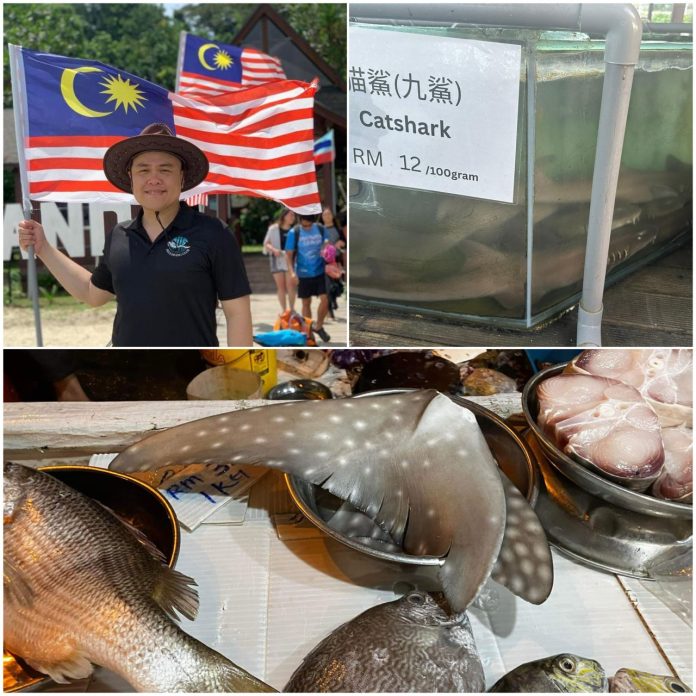KOTA KINABALU: The frequent spotting of possibly endangered marine species at local markets in Sabah raises alarm about the sustainability of marine ecosystems.
For the past few days, the diving community has spotted catsharks being sold openly at a seafood restaurant in Tuaran, and another one with white spots on body parts was found at a market here.
Deus Diving Club (DDC) president Sim Fui said that they are aware that only certain shark and ray species are protected under the federal Fisheries Act of 1985; thus, the rest of the species are allowed to be caught, sold, or consumed.
As of July 17, 2019, four shark species and two manta ray species gained country-wide protection under the Federal Fisheries (Control of Endangered Species of Fish) Regulations 1999 and the Fisheries Act 1985.
These species are the great hammerhead shark (Sphyrna mokarran), smooth hammerhead shark (Sphyrna zygaena), winghead shark (Eusphyra blochii), oceanic whitetip shark (Carcharhinus longimanus), giant oceanic manta (Manta birostris), and reef manta (Manta alfredi).
“As avid divers, we understand the critical role that sharks and rays play in maintaining the balance of our oceans. They are not only majestic creatures but also vital components of marine biodiversity.
“For the diving enthusiasts, they would not mind paying to see those species underwater. However, seeing them at the markets will really deter their interest in coming to Sabah.”
Therefore, Sim hopes Sabah lawmakers will prioritise the protection of marine species by introducing and advocating for legislation that safeguards these animals and their habitats.
“We believe that enhanced legal protections, coupled with strict enforcement measures, are essential to curbing illegal fishing activities and preventing further exploitation of vulnerable species.”
Meanwhile, Sim said the club, which has about 100 members of diverse backgrounds and professions, values collaboration and collective action in addressing environmental challenges.
He encouraged the public to actively report sightings of endangered marine species to relevant authorities and conservation organisations.
“By working together, we can raise awareness, gather crucial data, and take meaningful steps towards preserving our precious marine heritage for future generations.”


